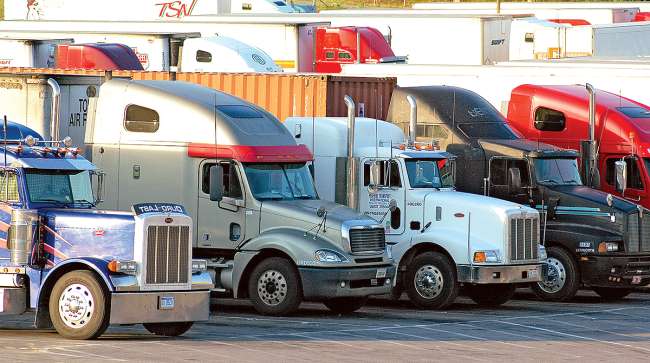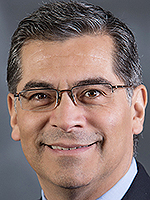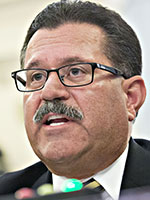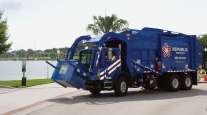Staff Reporter
FMCSA Sued by California Over Uniform Meal-and-Rest-Break Declaration

California officials are suing the Federal Motor Carrier Safety Administration over the agency’s determination that federal rest-break laws pre-empt California’s separate meal-and-rest-break requirements.
California Labor Commissioner Julie Su and state Attorney General Xavier Becerra filed suit in the U.S. Court of Appeals for the Ninth Circuit on Feb. 6 asking for FMCSA’s decision to be reversed. The petitioners claim they are adversely affected by the agency’s decision. Furthermore, the lawsuit document maintains that the state’s Labor Commissioner is the person authorized to enforce standards surrounding meal-and-rest-break laws.

Becerra
“It is well within a state’s rights to establish standards for the welfare of our workers,” Becerra said in a statement issued Feb. 7. “Truck drivers, like every other person protected under California’s labor laws across hundreds of different industries, deserve adequate meal and rest breaks.”
FMCSA announced its decision on the meal-and-rest-break rules Dec. 21 in response to petitions submitted by industry representatives, including American Trucking Associations and the Specialized Carriers and Rigging Association.
California law required employers to provide a “duty-free” 30-minute meal break for employees who work more than five hours a day, as well as a second duty-free, 30-minute meal break for those who work more than 10 hours a day, which differs from federal rest-break law.
After a 30-day comment period, which resulted in 700 public remarks, FMCSA determined that California’s rules are burdensome to drivers and decrease productivity.
California Suit Against FMCSA by on Scribd
“The action that we take in making this determination prioritizes safety, prioritizes jobs and I think, most importantly, uniformity for trucks moving in and out of California,” FMCSA chief Ray Martinez told Transport Topics. “Making uniform rules is key. The industry needs that type of dependability.”
Martinez said a hypothetical situation in which each state created a “patchwork” with different sets of meal-and-rest-break rules would be inordinately complicated.
Becerra and Su join the International Brotherhood of Teamsters’ Local 2785 group and Everardo Luna, a driver represented by the group, who filed suit in the U.S. Court of Appeals for the Ninth Circuit on Dec. 28, asking for FMCSA’s decision to be reversed. The Local 2785 chapter encompasses Teamsters in San Francisco and San Mateo counties.

Martinez
“California takes seriously the health and welfare of truck drivers, who have a right to basic worker protections that include meal and rest breaks,” Su said in the Feb. 7 statement. “Under the George W. Bush administration, [FMCSA] had determined that these very same worker rights were not pre-empted by federal law. In this reversal, the federal government would have drivers work up to 12 hours a day without breaks. We refuse to sit back and allow workers to be treated that way in California.”
ATA petitioned FMCSA in late September to determine whether California’s rules are pre-empted under federal regulations. Both Su and Becerra wrote letters to Martinez in October 2018 expressing opposition to ATA’s petition.
Prior to the petition, ATA conducted a four-year legislative push to include language establishing such uniformity in the FAA Reauthorization Act of 2018. The act was signed into law Oct. 5 and did not include the language.
Certain industry groups, including the American Moving and Storage Association, have applauded FMCSA’s decision. California Trucking Association CEO Shawn Yadon commended the agency, echoing Martinez’s admonitions against a patchwork system of different rules between states.




